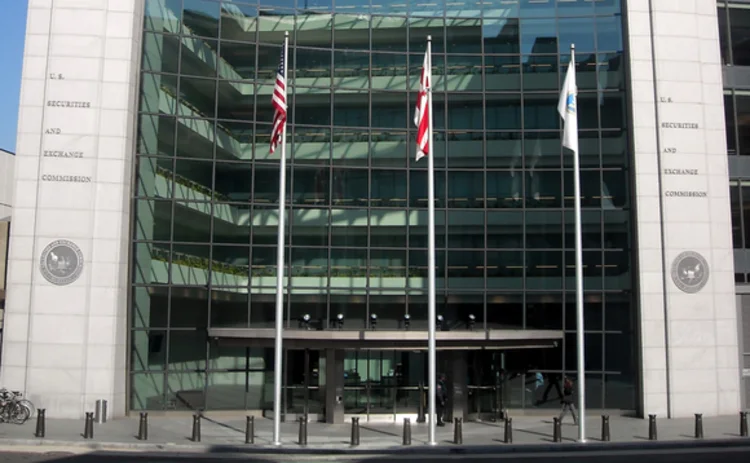Barclays, Credit Suisse Acquiesce to SEC Dark Pool Settlements
Barclays and Credit Suisse agree to pay $70 million and $84.3 million, respectively, to settle cases of misrepresentation of dark pool operations.

Both Barclays and Credit Suisse were charged with misleading investors over how the banks' respective dark pool trading venues operated. Barclays has agreed to pay $35 million to both the SEC and the New York Attorney General (NYAG), while Credit Suisse will pay $30 million to the SEC, $30 million to the NYAG, and $24.3 million in disgorgement and prejudgment interest to the SEC for a total of $84.3 million.
The SEC's charge against Barclays was focused on the bank's failure to police its dark pool through a feature called "Liquidity Profiling", which was meant to police order flow in its LX dark pool, while the bank ran weekly surveillance for toxic order flow. The SEC found that Barclays neither ran surveillance or used the Liquidity Profiling tool, and also has over-ridden the feature by moving some subscribers from the most aggressive categories to the least aggressive, without informing investors.
"Barclays misrepresented its efforts to police its dark pool, overrode its surveillance tool, and misled its subscribers about data feeds at the very time that data feeds were an intense topic of interest," said Robert Cohen, co-chief of the SEC's Market Abuse Unit.
Credit Suisse, meanwhile, was charged with misrepresenting that its Crossfinder dark pool utilized a feature called Alpha Scoring to characterize subscriber order flow monthly in an objective and transparent manner.
In its charge, the SEC said that Alpha Scoring included "significant subjective elements, was not transparent, and did not categorize all subscribers on a monthly basis" and that Credit Suisse "misrepresented that it would use Alpha Scoring to identify 'opportunistic' traders and kick them out of its electronic communications network, Light Pool. In fact, Alpha scoring was not used for the first year that Light Pool was operational."
In December last year, three of JPMorgan's Hong Kong-based equities businesses were fined a collective $30 million by the Securities and Futures Commission (SFC) for failing to properly implement its dark pool trading venue.
Only users who have a paid subscription or are part of a corporate subscription are able to print or copy content.
To access these options, along with all other subscription benefits, please contact info@waterstechnology.com or view our subscription options here: https://subscriptions.waterstechnology.com/subscribe
You are currently unable to print this content. Please contact info@waterstechnology.com to find out more.
You are currently unable to copy this content. Please contact info@waterstechnology.com to find out more.
Copyright Infopro Digital Limited. All rights reserved.
As outlined in our terms and conditions, https://www.infopro-digital.com/terms-and-conditions/subscriptions/ (point 2.4), printing is limited to a single copy.
If you would like to purchase additional rights please email info@waterstechnology.com
Copyright Infopro Digital Limited. All rights reserved.
You may share this content using our article tools. As outlined in our terms and conditions, https://www.infopro-digital.com/terms-and-conditions/subscriptions/ (clause 2.4), an Authorised User may only make one copy of the materials for their own personal use. You must also comply with the restrictions in clause 2.5.
If you would like to purchase additional rights please email info@waterstechnology.com
More on Regulation
Cyber insurance premiums dropped unexpectedly in 2025
Competition among carriers drives down premiums, despite increasing frequency and severity of attacks
Market participants voice concerns as landmark EU AI Act deadline approaches
Come August, the EU’s AI Act will start to sink its teeth into Europe. Despite the short window, financial firms are still wondering how best to comply.
ICE to seek tokenization approval from SEC under existing federal laws
CEO Jeff Sprecher says the new NYSE tokenization initiative is not dependent on the passage of the US Clarity Act.
Why UPIs could spell goodbye for OTC-Isins
Critics warn UK will miss opportunity to simplify transaction reporting if it spurns UPI.
Re-examining Big Tech’s influence over the capital markets
Waters Wrap: A few years ago, it seemed the big cloud providers were positioning themselves to dominate the capital markets tech scene. And then came ChatGPT.
Pressure mounts on Asia to fall in line for T+1
With the US already on a T+1 settlement cycle, and the UK and EU preparing for the shift in 2027, there’s pressure for Asia to follow suit. But moving may involve more risks than expected.
Brokers must shift HFT servers after China colocation ban
New exchange guidance drives rush for “proximity colo” in nearby datacenters.
Banks split over AI risk management
Model teams hold the reins, but some argue AI is an enterprise risk.








